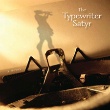The Baby and the Moth
August 25th, 2009Here are the first few paragraphs of a story called “The Baby and the Moth” that appeared in the New England Review in 2008 (Vol. 29, Number 4). Back issues of NER are available through the magazine’s website .
THE BABY AND THE MOTH
By Dwight Allen
Bennett walked the baby round and round the dining room table. He carried her cradle-style, atop the mound of his stomach. The baby chewed on her pacifier and gazed at the dusty light fixture above the table, at the water stains on the ceiling, at the moth that the cat had chased during dinner and that was now resting on a ceiling stain that was the shape of a pear. The baby’s eyes were inkwell blue, her hair was pale and sparse and came to a faint widow’s peak, her eyebrows were almost nonexistent, her minute eyelashes didn’t look like a defense against dust or any other particulate matter. But her forehead was for the moment smooth.
Five minutes ago, Camille was crying on the floor. Bennett had left her there after his wife had turned her over to him and retreated to the bedroom, and after he’d tried a variety of measures (rocking, swaddling her tight as a burrito, sweet-talking) to halt her crying. For an hour–before dinner, during dinner, after dinner–Camille had cried without surcease. The phrase “without surcease” had come into Bennett’s head as he was cutting up a pork chop for his wife, whose hands were occupied with holding Camille. (He had an idea that the phrase was from The Book of Common Prayer, a volume he used to be able to recite parts of. Didn’t The Book of Common Prayer enjoin the prayerful to pray without surcease?) Some minutes later, as Bennett looked into the toothless mouth from which howls arose, the phrase “existential anguish” had come into his head. Camille’s cries were like cries against the idea, the very actuality, of existence; they were the first principles of some dark philosophy, repeated over and over until the listener gave in and said, “I take your point.” When she cried, Camille’s face turned the color of outrage and the little bones in her skull that had not yet knitted together became pronounced, suggesting they might pop through the veil of her skin. Her legs became stiff as posts and her fluttery hands turned into fists with which she’d knock the world sideways, if she could.
So Bennett had put her down on the floor, on a receiving blanket, and then two minutes later, after the phrase “shitty father” came into his head, he picked her up and somehow managed to stick a pacifier into the agonized hole of her mouth. Then he walked with her round the table, on which the remains of dinner sat. He said, “Shush,” straight into her ear, a half-dozen times. In one of the birthing-and-parenting classes his wife had taken him to, he’d seen a video of some sort of colic specialist stilling a crying baby by holding her tightly and speaking firmly into her ear, like an old-school disciplinarian. For whatever reason, Camille quieted when Bennett shushed.
As they walked around the table, Bennett sometimes eyed the bottle of Belgian-style ale he’d not quite finished. At other moments, he imagined the ceiling falling in, covering them in wet plaster. The roof above the dining room needed to be re-shingled.
The cat was now sitting on top of the pie safe, and Jerry Garcia and David Grisman were singing children’s songs. Audrey had chosen the music. Bennett had come home from work–he was a clerk in a bookstore–with a bunch of new CDs (My Morning Jacket, the Decemberists, another band whose name had slipped his mind), but Grisman and Garcia, with their laid-back hippie drawls, ruled at dinnertime. Audrey was eighteen years younger than Bennett, who was fifty-two, but Audrey had the more conservative (or less contemporary) musical tastes. Once, early in their courtship, when he had said he liked an indie band he thought she was bound to know, she said, “Never heard of them. Do you like Doc Watson?”
The pie safe had been handed down to Audrey by a grandmother from Iowa. In it was what Bennett called the “wedding loot”–plates, a pewter tea set, serving bowls and platters, vases–and some of those things rattled if you stepped too hard on a particular floorboard near the pie safe. One of the legs was shorter than the others. Bennett avoided that floorboard when he passed the pie safe. He did not speak to the cat, whose attention, anyway, was riveted on the moth.
